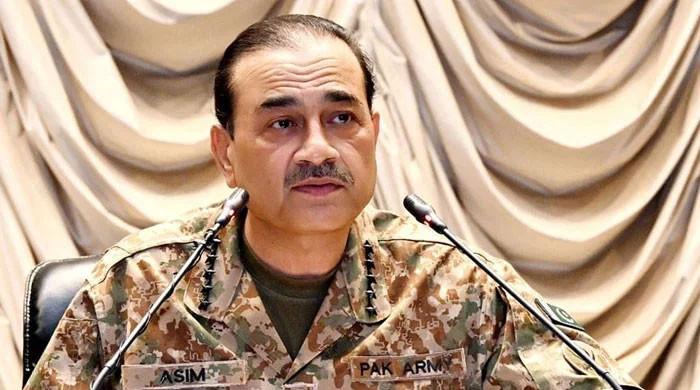DG ISPR Rejects Claims of COAS Presidency Ambitions
Director General of Inter-Services Public Relations (ISPR), Lt Gen Ahmed Sharif Chaudhry, has dismissed circulating reports that Chief of Army Staff (COAS) Field Marshal Syed Asim Munir intends to become the President of Pakistan.
In an interview featured in The Economist, the military’s chief spokesperson labeled the suggestions of the army chief’s potential presidency as unfounded.
This statement follows Prime Minister Shehbaz Sharif’s July denial of rumors that President Asif Ali Zardari would be asked to resign or that COAS aspires to the presidential role.
The premier described such claims as speculative and assured that the reports had no basis. Speaking to The News, the prime minister stated that Field Marshal Asim Munir has never indicated any interest in becoming president, nor are there any plans for such a move. He highlighted the respectful relationship between President Zardari, Field Marshal Asim Munir, and himself, emphasizing their shared commitment to Pakistan’s progress and prosperity.
PM Shehbaz’s clarification was preceded by Interior Minister Mohsin Naqvi’s condemnation of a “malicious campaign” targeting President Zardari, Prime Minister Shehbaz Sharif, and the Army Chief, in a statement shared on his X account.
Naqvi, who is known to have close ties to the military leadership, stated, “We are fully aware of the individuals behind this malicious campaign.” He added, “I have clearly stated that there has been no discussion, nor does any notion exist, about the president being asked to step down or the COAS desiring to take on the presidency.”
Response to Potential Indian Aggression
Responding to a question regarding Pakistan’s reaction to any renewed Indian aggression, Lt Gen Ahmed Sharif Chaudhry stated that Pakistan would respond by striking deeper into Indian territory. “We’ll start from the east,” he stated, adding that India needs to understand it is vulnerable to attack everywhere.
In May, Pakistan and India were engaged in military conflict after an April attack on tourists in Indian Illegally Occupied Jammu and Kashmir (IIOJK), which New Delhi attributed to Islamabad, before reaching a ceasefire agreement.
Following Indian actions, Pakistan’s armed forces initiated a significant retaliatory operation, named “Operation Bunyan-um-Marsoos”, hitting multiple Indian military sites across various regions.
Pakistan reportedly downed six Indian fighter aircraft, including three Rafales, along with numerous drones. The conflict concluded on May 10, after approximately 87 hours, with a US-brokered ceasefire.
The ceasefire was initially announced by then US President Donald Trump on social media, following discussions between Washington and both nations. However, India disputed Trump’s claims that the agreement was a result of his intervention and threats to halt trade negotiations.
Pakistan has recognized Trump’s efforts and formally proposed him for the 2026 Nobel Peace Prize, citing his role in de-escalating tensions between Islamabad and New Delhi the previous month.



Comments (0)
No comments yet. Be the first to comment!
Leave a Comment